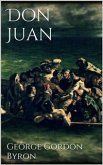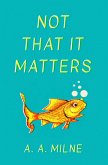In William Makepeace Thackeray's collection of Ballads, readers are taken on a journey through a series of captivating narrative poems that delve into various themes such as love, loss, and society. Thackeray's literary style shines through his skillful use of language and vivid imagery, creating a rich and evocative reading experience. Set in the Victorian era, these ballads reflect the societal norms and values of the time, offering insights into the human experience and emotions that are timeless. Thackeray's ability to weave together storytelling and poetry showcases his versatility as a writer, making this collection a must-read for fans of both genres. William Makepeace Thackeray, a prominent English novelist and satirist of the 19th century, drew inspiration from his own experiences and observations of society to create his works. His keen insight into human nature and his sharp wit are evident in his writing, adding depth and complexity to his characters and themes. It is this depth that makes his Ballads a compelling read for those interested in exploring the intricacies of human emotion and society. For readers seeking a poetic exploration of love, loss, and society within the context of the Victorian era, William Makepeace Thackeray's Ballads is a captivating and thought-provoking collection that offers a glimpse into the timeless themes of the human experience.
Dieser Download kann aus rechtlichen Gründen nur mit Rechnungsadresse in A, B, BG, CY, CZ, D, DK, EW, E, FIN, F, GR, H, IRL, I, LT, L, LR, M, NL, PL, P, R, S, SLO, SK ausgeliefert werden.









